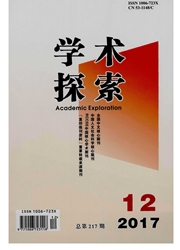

 中文摘要:
中文摘要:
司法职业场域下,直觉是一种被法律人频繁运用却又难以察觉并言明的思维认知方式。它直接跨过所有分析推理步骤,以直接、跳跃的方式直达问题核心,得出即时判断。借助认知心理学的相关理论知识和研究方法观察这种司法活动中的直觉思维,它最终都以直觉判断的方式呈现。司法实践活动中的此种直觉判断的显著特征主要体现在其内隐性、自动化加工与控制化加工的二重性以及同步并行性三个方面,同时受到信息量大小差异、法感差异以及认知加工方式差异三重因素的影响。
 英文摘要:
英文摘要:
Intuition is a cognitive method that is often used by law people without knowing or speaking clearly in the judicial profession. It can point to the core of the problem and make immediate judgment without all the analytic reasoning steps. This paper explores this issue by applying the relevant theoretical knowledge and research methods of cognitive psychology. Our study shows that the intuitive judgment in judicial activities has three distinguishing features : implicitness, automatic processing mixed with controlled processing and synchronism. At the same time, it can be affected by differences of information size, law sense, and cognitive processing method.
 同期刊论文项目
同期刊论文项目
 同项目期刊论文
同项目期刊论文
 期刊信息
期刊信息
